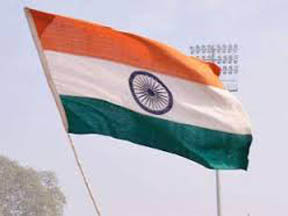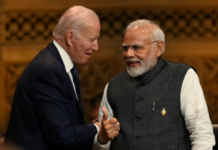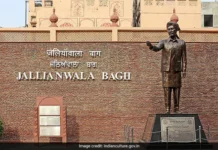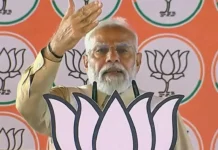 NEW DELHI: China’s initiative to revitalize the Silk Road would open many opportunities and the rise of the Global Southern Belt would provide a ray of hope to Indian entrepreneurs, according to long-time China observers John Naisbitt and his wife Doris.
NEW DELHI: China’s initiative to revitalize the Silk Road would open many opportunities and the rise of the Global Southern Belt would provide a ray of hope to Indian entrepreneurs, according to long-time China observers John Naisbitt and his wife Doris.
“In regards to the Global Southern Belt, we believe that especially China’s initiative to revitalize the Silk Road would open many opportunities. India has very good and historical connection to African countries. It shouldn’t miss the opportunity to be connected via the new Silk Road with the prime position it has.
“In the India-Africa Forum Summit your Prime Minister pointed out India’s interest in Africa. And many entrepreneurs are already engaged in various Indian African businesses,” they said.
The couple has recently published a book titled “Global Game Change: How the Global Southern Belt will Reshape Our World,” which argues that the global authority of the West is no longer unchallenged; the Western worldview is no longer accepted as universal.
And it is increasingly being questioned by emerging economies around the globe that are developing their own standards which form a belt around the southern part of the globe: “The Global Southern Belt.”
The book, published by Sage India, is seen as an indispensable roadmap of the transforming global landscape.
In an email interview, the Naisbitts said India is playing a major role in the global community and has the advantage that it’s very much liked in the global community.
“The world wants India to be successful, to beat China, to say it clearly. We also have to differentiate between India’s political and economic agenda. Ideally India could become a bridge between the Middle East, Pakistan and Iran and China.
It could hold high the banner of democracy among a continent where many citizens are still fighting for basic human rights,” they told PTI.
However, they feel that India has to address several issues like corruption, illiteracy and caste system.
“While we understand that any discrimination on the basis of caste is illegal, it is still a great hurdle in India’s social mobility. Someone in India jokingly said, yes, corruption is fought, but it just means that instead of Rs 700,000 you now pay Rs 70,000.”
On violence against lower castes and women, they said, “The problem is the general mindset that still prevails among uneducated people. You cannot just order such mindset to be changed. The only way to change it is education.
“And education, better the lack of education, is a core problem of India. Growing up in the caste mindset will act the way they learned it and witnessed it. It does not help when your Prime Minister takes five days to condemn such violence.
It needs clear words and the implementation of the rule of law.”
“The challenge is that on the ground, in everyday life change to the better needs to come much faster. Healthcare, education, social security, the fields of necessary reforms are almost endless,” they said.
According to the Naisbitts, manufacturing is a good option for India to create jobs and attract FDI.
“Wages in China are increasingly unattractive for manufacturing. But as production will move more and more towards digitalization, where fewer and fewer people produce more goods, it will only for a limited time. In addition other Asian countries, Vietnam and Cambodia for example are very competitive and have positioned themselves well.
“India has made a big jump in the Global Competitive Index, moving up 16 positions to the 55th rank. But its improvement in infrastructure, which plays a big role in investing in the country, still only shows slight movement,” they said.
They also feel that China’s constantly rising wages are a plus for India to host labor-intensive manufacturing. The Naisbitts are the authors of the international bestsellers “Megatrends.” –PTI






